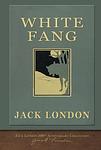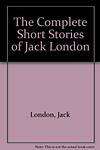Jack London
Jack London was an American novelist, journalist, and social activist. He was born on January 12, 1876, in San Francisco, California, and is best known for his adventure novels and stories of survival in the wilderness. His most famous works include 'The Call of the Wild' and 'White Fang.' London's writing was heavily influenced by his experiences in the Klondike Gold Rush and his socialist political views. He died on November 22, 1916, at the age of 40.
Books
This list of books are ONLY the books that have been ranked on the lists that are aggregated on this site. This is not a comprehensive list of all books by this author.
-
1. The Call of the Wild
This book tells the story of a domesticated dog named Buck who is stolen from his home in California and sold into service as a sled dog in Alaska. As he faces harsh conditions and brutal treatment, Buck must learn to adapt to the wild and harsh environment, ultimately reverting to his ancestral instincts in order to survive. The book explores themes of nature versus nurture, civilization versus wilderness, and the struggle for dominance.
-
2. White Fang
The novel tells the story of a wolf-dog hybrid named White Fang, who endures harsh conditions in the Yukon during the 19th-century Klondike Gold Rush. The narrative follows White Fang's journey from a life in the wild to domestication. He experiences cruelty and brutality from both nature and humans, but eventually finds kindness and compassion with a man who rescues him from a dog-fighting ring. The book explores themes of survival, nature versus nurture, and redemption.
-
3. Martin Eden
The novel follows the life of a poor, self-educated sailor who becomes a successful writer. The protagonist struggles to rise above his social class, driven by his love for a refined, upper-class woman. His journey leads him through various experiences, from physical labor to intellectual pursuits, highlighting the challenges of social mobility and the disillusionment that often accompanies success. Despite achieving his dreams, he becomes disenchanted with the very society he sought to join, leading to a tragic end.
-
4. To Build A Fire
This story unfolds in the harsh, unforgiving landscape of the Yukon Territory, where a man, accompanied only by a dog, embarks on a journey to meet his companions at a mining camp. Despite warnings about the perilous cold, he underestimates nature's power and his own vulnerability. As he struggles to survive against the extreme temperatures, his journey becomes a gripping tale of human resilience and the instinctual will to live. The narrative reaches its climax when he attempts to build a fire, a critical moment that tests his survival skills and ultimately reflects on the human condition and our place in the natural world.
-
5. The Iron Heel
"The Iron Heel" is a dystopian novel set in a future world where a tyrannical oligarchy, known as The Iron Heel, has seized control of the government and economy, brutally suppressing the working class. The story is told through the eyes of a socialist revolutionary, who chronicles the ruthless rise of the oligarchy and the subsequent struggle for freedom and equality. The novel explores themes of class conflict, inequality, and the power of resistance, offering a stark critique of capitalism and a prophetic vision of a future dominated by corporate power.
-
6. The Sea-Wolf
"The Sea-Wolf" is a gripping adventure novel that tells the story of a refined literary critic who is rescued from a shipwreck by a brutal sea captain. The protagonist is forced to adapt to the harsh life of a sailor while clashing with the captain, a cruel and amoral man who believes in the survival of the fittest. As the narrative progresses, the protagonist not only survives but thrives, proving that gentleness and civilization are not signs of weakness. Eventually, he manages to escape the ship with a woman who was also rescued, and they end up stranded on a deserted island where they fall in love and start a new life.
-
7. The Scarlet Plague
In "The Scarlet Plague", the world has been devastated by a deadly pandemic that has wiped out most of humanity, leaving only a few survivors. The story is set in 2073, sixty years after the plague, and is narrated by an old man who is one of the last people alive who remembers the pre-plague world. He attempts to impart his knowledge and memories to his grandsons, who have only known the primitive, post-apocalyptic world. The novel explores themes of civilization, knowledge, and the fragility of society.
-
8. The Complete Short Stories of Jack London
This collection features the complete short stories written by a renowned American author, known for his vivid portrayals of adventurous and survivalist themes. The stories, often set in the harsh landscapes of the Klondike Gold Rush or the South Pacific, examine complex human nature, survival instincts, and socio-economic conditions of the time. The author's unique storytelling style, combined with his keen observational skills and deep understanding of human psychology, makes each story a compelling read.







